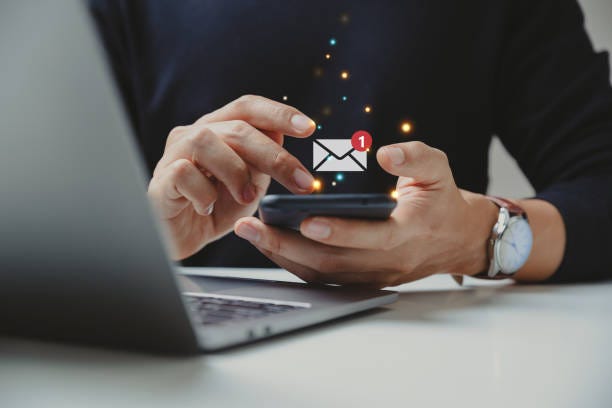
The Secret Reason We’re All Addicted to Notifications
Josh Shear – You’re in line for coffee, and your phone buzzes. You know it’s probably nothing important, but you check it anyway. Then you check again 30 seconds later, just in case. Sound familiar? You’re not alone. In 2025, we’re more connected than ever and more distracted. But the secret reason we’re all addicted to notifications isn’t just habit, or even tech design. It’s something deeper, more psychological, and far more intentional.
For years, we’ve blamed Silicon Valley engineers and dopamine-driven UX tricks for our compulsive notification-checking. While there’s truth in that, the real addiction taps into something ancient: our fear of missing out on belonging.
Every notification is a tiny social promise. A like means validation. A message means connection. A calendar alert means relevance. When that screen lights up, it’s not just telling us something happened it’s telling us we matter. That illusion of importance is engineered into the smallest alert. It hijacks the brain’s primitive survival system: the same system that once told us to listen for footsteps in the dark now tells us to check our DMs.
But here’s the twist it’s not just the reward of a notification that drives the addiction. It’s the anticipation. That uncertain thrill, the maybe-it’s-important feeling, is more powerful than the content itself. And that’s exactly how modern notification systems are designed: not to inform you, but to train you.
Read More: How Blockchain Is Reinventing Digital Security Like Never Before!
Originally, notifications served a useful purpose. They told you when your taxi arrived or reminded you to pay a bill. But as platforms began competing for attention, notifications evolved into a behavioral trigger system. Social platforms, productivity apps, news feeds even wellness trackers started pushing “alerts” not because they were important, but because they wanted you back in the app.
In other words, notifications became strategic distractions. App makers learned that if you could be nudged to open the app three more times per day, engagement numbers soared. Algorithms got smarter. Notification systems adapted. Suddenly, you weren’t just notified when something happened—you were notified so that something would happen.
Here’s how it works: You get a notification, you check it, and you get a minor dopamine reward. That encourages you to check again. But soon, the checking becomes habitual, even when there’s no notification at all. You start checking just in case. This creates what psychologists call a “variable reward schedule” the same pattern that makes slot machines addictive.
The worst part? You’re not even aware of it. The habit embeds itself into daily routines, breaks, commutes, and even social settings. You no longer decide to check you have to. It becomes instinct.
And once that loop is in place, it’s incredibly difficult to break without conscious effort.
We often think of notifications as harmless. They’re small, they’re quick, and they’re easily dismissed. But over time, their psychological toll is real. Studies in 2025 show that people who receive more than 80 push notifications per day report significantly higher levels of anxiety, concentration issues, and sleep disruption.
Beyond that, constant interruption reduces deep thinking, creativity, and emotional regulation. We’re becoming mentally fragmented, and we don’t even realize it because we’re too busy reacting to the next buzz.
Notifications aren’t just about data they’re about status. If you don’t respond to a message right away, you risk looking inattentive. If you don’t post regularly, you risk becoming invisible. Platforms know this, and they use notifications to reinforce urgency: “Your friend just went live,” “You’ve got 3 new likes,” “Don’t miss this story.”
It’s not just your attention they want it’s your identity. And as long as you tie your self-worth to those red dots and pings, they have control.
Yes—but it requires more than turning off a few push alerts. It requires redefining what notifications are for. Are they helping you live better, or are they simply pulling you back into a digital loop?
Start by pausing and asking: Do I really need to know this right now? If not, it can wait. Reclaiming your attention begins by questioning the urgency that modern tech pretends everything has.
Better yet, try silence. Try no vibrations. Try removing icons from your home screen. Try scheduling notification-free hours. You’ll be surprised at how much clearer your thinking becomes—and how much calmer your day feels.
Our addiction to notifications isn’t just about technology it’s about psychology, emotion, and the human need to feel connected. But in trying to stay connected, we’ve disconnected from ourselves.
The good news? You can take back the ping. You can decide which signals deserve your attention, and which ones are just noise. And in doing that, you take back more than your time you take back your mind
This website uses cookies.